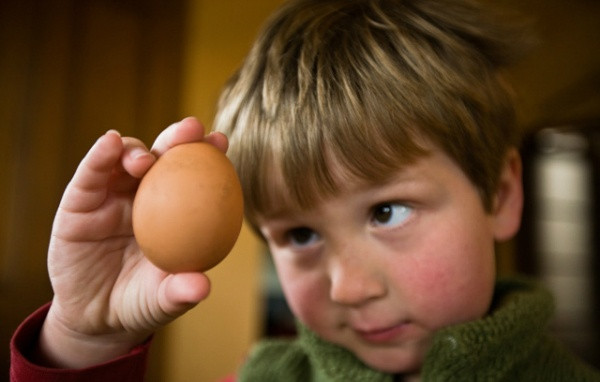How many eggs is enough for children?
Eggs are very good food but you should not eat too much because the high fat content makes children prone to bloating and indigestion.
Eggs are a food that provides a lot of protein with high biological value, easy to absorb, equivalent to protein in milk if processed properly. In addition, egg yolks provide a lot of fat, vitamins and minerals that are essential for children's development such as iron, vitamin A, zinc...
The nutritional value of chicken and duck eggs is not much different, but in terms of micronutrient composition, chicken eggs are better than duck eggs. The zinc and vitamin A content of chicken eggs is higher than that of duck eggs, and chicken eggs also contain vitamin D, a vitamin that is very rare in foods.
The protein content of chicken eggs is also higher than that of duck eggs. The fat content in chicken eggs is lower, so it is less likely to cause indigestion. So it is better for children to eat chicken eggs.
 |
Eggs are a very good food but you should not eat too much. The high fat content in eggs makes children prone to bloating, indigestion, and digestive disorders. Depending on the child's age, parents can feed their children different amounts:
Children 6-7 months old: Should only eat half an egg yolk per meal, 2-3 times a week.
Children 8-12 months old: Eat one egg yolk per meal, 3-4 egg meals per week.
Children 1-2 years old: Eat 3-4 eggs per week, including the egg whites.
Children 2 years and older who like eggs can eat one egg a day.
The best way to cook eggs is to boil them thoroughly, not only to ensure nutrients such as protein, lipids, minerals... but also to minimize vitamin loss and prevent infection...
How to boil eggs properly: Put eggs and water in a pot and bring to a boil. When the water boils, reduce the heat and cook for about 2 minutes, then turn off the heat and soak the eggs for about 5 minutes. This way, the eggs will be just cooked, the yolks will not be overcooked, and will be easily absorbed. When boiling, you can add a little salt to keep the eggs from breaking.
Eggs just taken out of the refrigerator should not be boiled immediately, nor should they be soaked in hot water or boiled over high heat because it can easily cause the eggs to break or the yolk to not cook.
How to prepare eggs for children according to their age
Children 6-12 months should be fed egg porridge. Cook the porridge thoroughly before adding the eggs. How to make: Crack the egg yolk into a bowl with chopped vegetables, beat the egg and vegetables well, boil the porridge on the stove, then pour in the egg and vegetables and stir quickly until the porridge boils. Do not cook it too long, as the eggs are difficult to absorb. Do not boil the egg and then mash the yolk to cook porridge because the egg is difficult to absorb after being cooked many times.
Children 1-2 years old can eat egg porridge, similar to cooking egg powder, when the porridge is cooked then add the egg, boil again, you can also feed children boiled eggs until just cooked.
Children 2 years and older can eat egg porridge, boiled eggs, fried eggs with meat, or eggs in tomato sauce with rice. It is best to eat eggs that are boiled until soft-boiled.
According to VNE
| RELATED NEWS |
|---|


